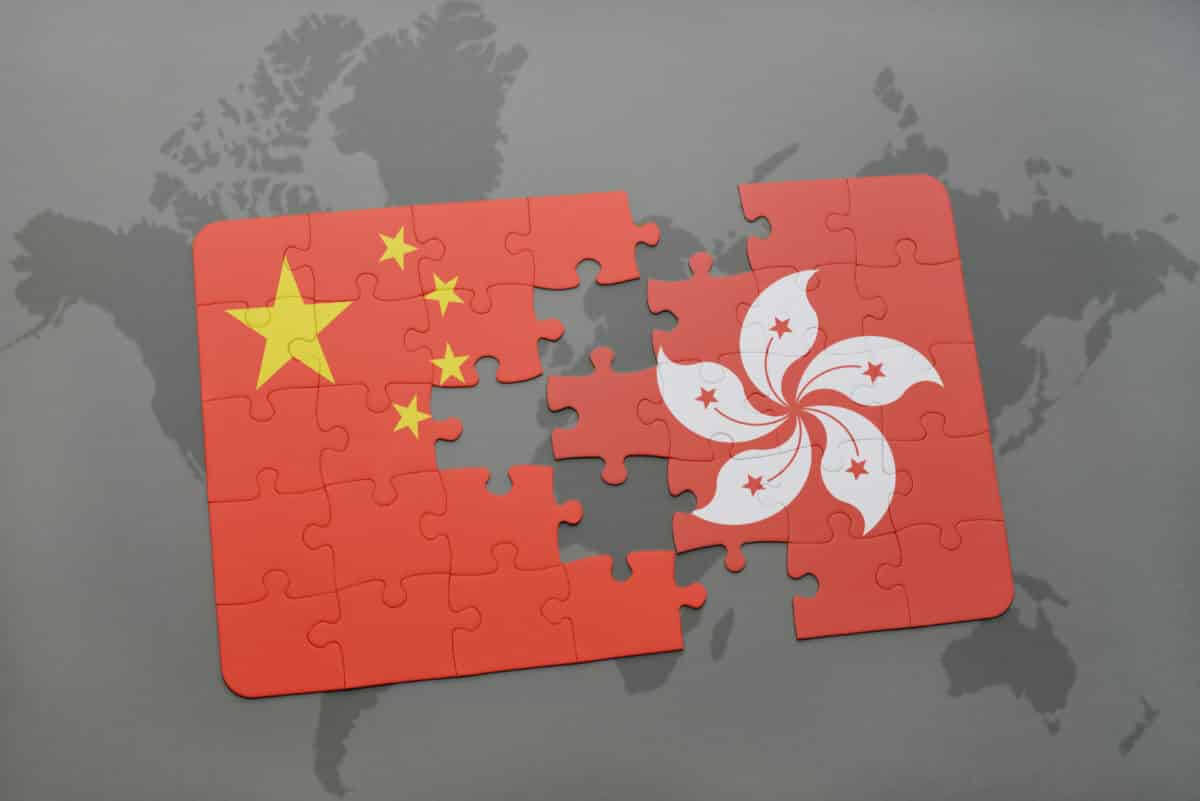
China’s New Security Law Could Change Hong Kong Forever
Economic News: Hong Kong is one of the world’s most prominent financial hubs, but this status appears to be under threat.
China unanimously passed a new security law for Hong Kong – which some experts warn could potentially erode the very structures that grant Hong Kong significant privileges on the international stage.
The new law bans sedition, secession, and treason against China – crimes that can lead to life in prison.
According to Robert Koepp, China consistently uses national security to avoid abiding by any rules. They can arrest without any explanation. Robert Koepp is the founder and principal at Geoeconomix.
However, China’s premier says the new law is meant to protect Hong Kong’s long-term prosperity. Protests since 2019 have crippled Hong Kong. But critics worry that China’s move to tighten its hold in Hong Kong jeopardizes the freedom China guaranteed to the territory for 50 years when the U.K. handed it over in 1997.
Claudia Mo, Hong Kong’s legislator, said they didn’t expect the full-scale attack. He added that this was the end of Hong Kong.
Why now?
The global pandemic has distracted the West, and the U.S. is retrenching under increasingly isolationist policies. According to experts, the timing makes sense for China.
Also at play is the fact that China needs to shore up support at home.
China’s handling of the coronavirus outbreak drew the international community’s and some mainland Chinese citizens’ wrath.
China’s economy is in lousy shape, having taken a hit from Covid-19.
Some analysts say China needs a quick fix to repair its image locally. Getting Hong Kong in line is a hugely popular move among the general population.
But perhaps the main factor at play is that China does need Hong Kong as much now. In the 1990s, Hong Kong accounted for 27% of China’s economy. But now it accounts for less than 3%.
China has several hub cities attracting foreign investments and workers, such as Beijing, Shenzhen, Shanghai, Guangzhou, and Chongqing. China no longer relies solely on Hong Kong; therefore it has fewer and fewer incentives to keep Hong Kong happy and economically independent.
Why Hong Kong still matters
Shanghai is a significant business hub, attracting multinationals globally.
Shenzhen is a metropolis to North Hong Kong and has grown a manufacturing powerhouse that turned China into the world’s biggest exporter.
However, Hong Kong is still in Asia’s prominent financial hub. Its seamless interface with the West and its massive port makes it easy to trade with global investors.
Hong Kong is a primary conduit between the East and the West for global trade and finance – thanks to the large part of its independent judiciary and regulators that guarantee an ironclad rule of law.
International investors and businesses trust Hong Kong’s legal system.
So, even though Hong Kong does not contribute that much to China’s annual GDP, it remains China’s lifeline to investments from the West.
Most foreign direct investment in and out of China goes through Hong Kong. Chinese companies also prefer Hong Kong when borrowing and raising money.
Its major advantages
Hong Kong is also a home for fintech, private banking, and derivatives trading.
China has used financial institutions in Hong Kong to help prop up its national currency.
In June, there was a new proposal to transform Hong Kong into a prominent offshore center for the Chinese yuan. It’s one of the broader initiatives to integrate Hong Kong further into financial markets in Mainland China.
Some experts say Hong Kong’s greatest advantage is its position as a major offshore funding center for the USD. The Hong Kong dollar has been based on the USD since 1983, which has been instrumental in ensuring financial stability.
Investors feel safe leaving their cash in Hong Kong and dealing with Hong Kong’s local currency because they can easily convert it to USD. This is a major reason that propelled Hong Kong to become the premier financial hub it is today and its most important contributions to China.
So, any pressure from the U.S. could hurt China.
Some onlookers in China say America’s threat to withdraw Hong Kong’s special privileges could limit its access to the USD. America’s move could set off a domino effect, beginning with a capital fight and culminating in a currency collapse and enormous losses for investors. But analysts think this is unlikely to happen.
A financial hub in jeopardy
Before the new security law, Hong Kong’s economic stability was already in jeopardy. It had dropped from position three to six between September 2019 to March 2020 in a bi-annual ranking of the world’s global financial centers. Shanghai, Tokyo, and Singapore overtook it, with Beijing trailing just behind at position seven.
Pro-democracy protests effectively shut down commerce and tourism took a massive hit. The eroding freedom also sent Hong Kong’s economy into a recession in 2019.
The new legislation has only served to foster unrest across Hong Kong further. It bars subversion of state power, foreign interference, and terrorism activities.
More than 1300 American businesses operate in Hong Kong. The American Chamber of Commerce surveyed more than 80% of them and discovered that they were concerned about China’s move to enact the new security law. They cited fears over the potential impact on fundamental civil liberties.
Also at stake are the major privileges accorded to Hong Kong under the 1992 U.S.-Hong Kong Policy Act. In 2019, trade between the U.S. and Hong Kong was about $66 billion.
On May 28, the National Australia Bank said the U.S. had opened doors for possible tariffs on imports from Hong Kong, asset freezes, or visa restrictions for top officials.
President Trump’s administration is already taking action. On Friday, Mike Pompeo, the Secretary of State, announced new visa restrictions on Chinese officials responsible for restricting Hong Kong’s freedom.
The U.S. can also decide to restrict imports of sensitive technology to Hong Kong-based firms.




